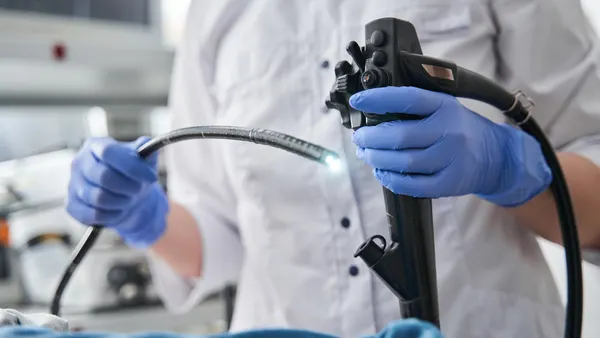Dive Brief:
- The White House year-end regulatory to-do list includes proposed regulations to establish an over-the-counter category of hearing aids, revise how humanitarian device exemption approvals and denials are announced, and streamline Medicare coverage of breakthrough technologies that can improve health outcomes for patients.
- FDA also plans to take a rare action in finalizing a ban on electrical stimulation devices used to treat self-injury or aggressive behavior in December. To date, FDA has only banned two types of medical devices: powdered medical gloves in 2017 and prosthetic hair fibers in 1983.
- Other major device proposals are on the horizon: FDA plans to revise regulations to clarify what medical software is exempt from device regulations in May 2020; issue a framework to clarify how it imposes clinical holds on medical device investigations in February 2020; and harmonize quality system regulations with international consensus standards in April 2020. The agency also anticipates issuing its final rule defining its De Novo classification process in June 2020.
Dive Insight:
The White House agenda touched on another top issue for device manufacturers, potentially allowing the industry to breathe a sigh of relief amid concerns about a federal crackdown on commercial ethylene oxide sterilizers: The Environmental Protection Agency says a timeline for final regulations remains to be determined.
The biannual laundry list provides a glimpse into the executive branch's agenda thinking, but the timelines are better viewed as a guide than reality. Regulations are often held up for administrative reasons or due to industry lobbying.
For example, in spring, FDA said it planned to issue its medical device software regulations by the end of 2019, an action that now appears delayed by nearly a half year.
The proposals are also sometimes unclear: CMS already outlined ways for breakthrough devices approved by FDA to receive boosted reimbursement in its inpatient and outpatient regulations this year.
Still, the agency's regulatory plan hints at an economically significant proposed rule set for release in December that will modify the "Medicare coverage process to streamline coverage of breakthrough technologies."
Other actions remain consistent over time: In October 2018, FDA said it planned to release a proposed rule to boost the availability of hearing aids in November 2019, a target the agency appears on track to meet despite heavy lobbying by the hearing aid industry.
"The Agency is committed to timely implementation of this provision, and to ensuring the proper guardrails are in place to make over-the-counter (OTC) hearing aids a safe and effective option for consumers," FDA spokesperson Kristen Pluchino told MedTech Dive in an email.
FDA also plans to classify human leukocyte antigen, human platelet antigen, and human neutrophil antigen devices as Class II devices with special controls in December.













